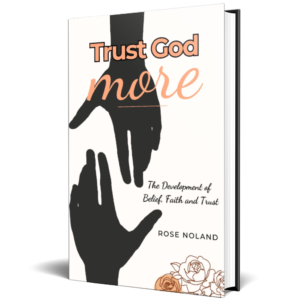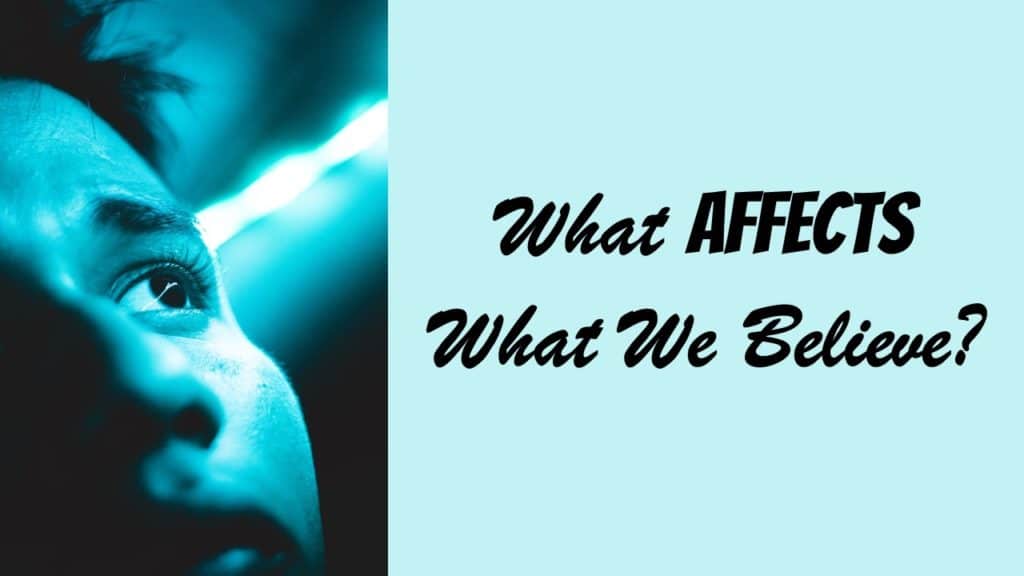When we are presented with information we either accept, reject, or remain neutral about it.
From the moment we are born our brains receive information through our five senses. As our minds begin to process all the incoming data, the way we think—our belief system—begins to take shape. And since we all have different makeups, we won’t all respond in the same way.
I may be stating the obvious here, but all the information coming into our lives is not fact.
We cannot do anything about how we processed events and information in the past. We cannot change the lies we once believed or how we responded to them. That’s imprinted on the hard drive of our brain’s computer. But we can take a more active role now in what we allow into our minds and our belief system. We can change the way we currently think by overriding the old way of thinking with correct thinking.
This is vitally important because the way we think determines how we act.
We need to distinguish truth from lies, fact from fiction. We must be careful not to assume the info presented to us is fact. That’s where so many people get into trouble.
Consciously or subconsciously, our brains are processing incoming data. We must not be mindless, passive robots. We need a good grid system in place to filter out erroneous, dubious, and superfluous information.
So how do we know whether to believe incoming information or not? Blow is list of factors that influence our brain’s decision-making process.
Factors Affecting What We Believe
1. The reliability and importance of the source of information
The more reliable and important the source of information, the more likely we will receive it as true and vice versa. For example, what your parents say to you as a child play a huge part in your belief system.
2. The amount of facts
If we only have a few facts on a topic, our brains cannot process it accurately. I am no neuroscientist, but I think our brains have a filing system. When facts come in, they are placed in a folder in a similar category. If there is no pre-existing folder, our brains don’t know where to store it, and it just hangs out there in limbo. It’s there, but not easily remembered. As more related facts come in, a folder is “created” and the information can be more easily retrieved and understood.
Therefore, if we only have a few facts on a topic, it would be wise to put them in the “not sure” category.
3. Frequency of the same information
If we are constantly bombarded with the same message, it’s hard not to accept it as true.
4. Conflicting information
Here again, it would be wise to put it in the “not sure” category, until we have more facts.
5. Our understanding of the information
The more knowledgeable we are about a topic, the greater our ability to detect error.
6. Our desires
Some facts are difficult to accept. If we don’t want to believe something, we close our hearts and minds to it. The converse is also true—if we really want to believe something is true, we can very easily convince ourselves that it is true.
7. Our current belief system
What we already believe (or want to believe) greatly affects how we perceive incoming data and whether or not we will be open to accept the information as true. The stronger our convictions, the harder it’ll be to change our minds.
8. Our emotional state
Our emotions greatly influence our thinking process. Strong feelings can disrupt clear thinking.
9. Past and current circumstances
If our circumstances, past or present, conflict with the information we are given, we will be less open to accept it.
10. Past violations of trust
It’s hard to accept information as true if it is related in any way to a past betrayal.
~~~~~
My friend, I hope this excerpt from my newest book has equipped you to take a more active and intentional role in the way you think.
Now available on Amazon in printed and kindle formats, along with a companion workbook. 
By the way, Trust God MORE made the Amazon bestseller list in these categories the first week!
- Faith & Spirituality (Kindle Store)
- Christian Faith (Kindle Store)
- Religious Faith


